Call to reach our student support team
Agriculture is Facing a Crisis
Farmers and Ranchers around the world are facing huge challenges like…
Farmers and Ranchers around the world are facing huge challenges like…
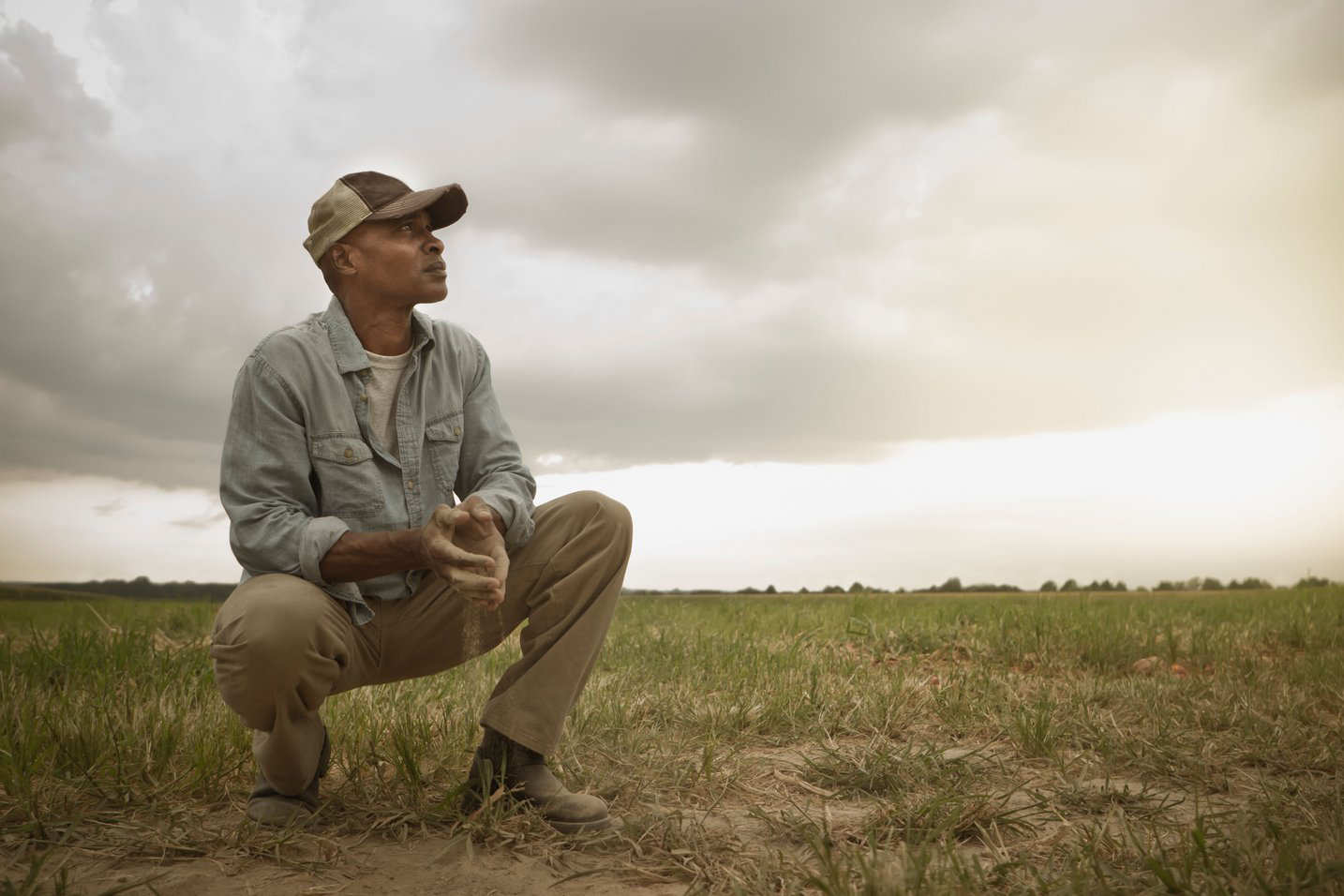
It can feel like it’s a never-ending battle fighting against all the different critters out there that want to take your crops down.
Layers of compacted earth result in soil erosion and they make it really tough for plant roots to penetrate deep into the soil profile.
Soil fertility is a major problem around the world. This results in lower yields and produce that is nutrient deficient.
As soil structure and organic matter content are degraded over time, the soil’s ability to infiltrate and hold water is compromised.
Many farmers are experiencing diminishing crop yields despite the fact that they are pouring on more and more chemical fertilizer year after year.
For many farmers, the costs of chemical inputs seem to rise every year, making it harder and harder to earn a living.
Not a Farmer, Rancher, or Grower? Interested in becoming a Soil Food Web Consultant, Lab-Tech, or Biological Compost Producer?
You can save 45% OFF too; click here to learn more.
Not a Farmer, Rancher, or Grower? Interested in becoming a Soil Food Web Consultant, Lab-Tech, or Biological Compost Producer?
You can save 45% OFF too; click here to learn more.
Having a healthy, functional soil results in several benefits that growers are becoming aware of as the Regenerative Ag movement grows.
Many of these benefits can be seen in months, rather than years, once the Soil Food Web is restored. That’s because it’s the microbial community that drives the soil ecosystem.
With beneficial biology in the soil, plants get to control their own nutrition by exchanging exudates for the nutrients they need, when they need them. Click here to learn more.
The soil food web protects plants from disease-causing organisms and pests in a number of different ways. Click here to watch the video about this.
Improved nutrition and soil structure as well as protection against pests and diseases are some of the ways in which plants are positively affected, resulting in increased yields. Learn more.
Beneficial soil microbes build soil structure, which enables water to better infiltrate clay soils while increasing the water-holding capacity of sandy soils. Increased organic matter is also very important. Learn more.
With the Soil Food Web Approach we enlist the help of beneficial microbes to build soil structure and we also adopt management practices such as no-till to ensure that compaction doesn’t recur. Learn more.
Your plants can get what they need from the soil once you have the right biology in place. This includes nutrition and protection from pests and diseases. Click here to learn more.
Watch more videos on the science behind the Soil Food Web Approach!
Not a Farmer, Rancher, or Grower? Interested in becoming a Soil Food Web Consultant, Lab-Tech, or Biological Compost Producer?
You can save 45% OFF too; click here to learn more.
The Soil Food Web Approach has been used to regenerate soils on 6 continents, in many different environments and with numerous different crops, such as Soybeans, Corn, Grains, Vines, Orchards, Hemp, and all kinds of Veggies.
All plants form symbiotic relationships with the microbes in the soil.
This is a flexible online program, so you can work at your own pace. The Foundation Courses can be completed in as little as 4 weeks or as long as 12 months.
The Mentoring Program is also designed to be very flexible. You can book sessions with your mentor when you feel you need support. The pace is designed to suit busy farming professionals.
Our training programs are designed for people with no scientific background.
Dr. Elaine has an informal teaching style that makes the lectures easy to follow.
You’ll have access to the Student Forum and monthly live Q&A sessions where your questions will be answered.
Not a Farmer, Rancher, or Grower? Interested in becoming a Soil Food Web Consultant, Lab-Tech, or Biological Compost Producer?
You can save 45% OFF too; click here to learn more.
Study the science and application methods behind the Soil Food Web Approach in the Foundation Courses, then work with one of our highly skilled mentors to create your own biological compost and master the microscope.
Once you’ve successfully completed this program, you will:
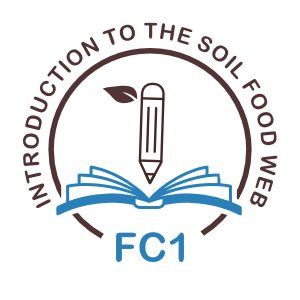
In Foundation Course 1 you will learn:
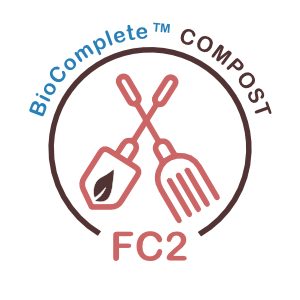
In Foundation Course 2 you will learn:
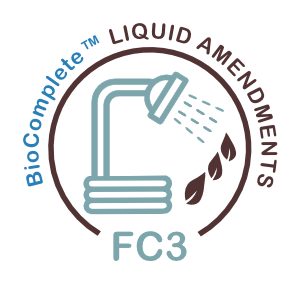
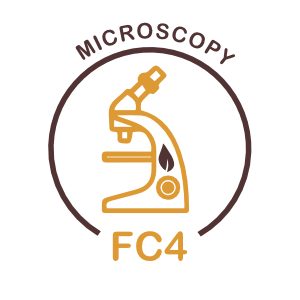
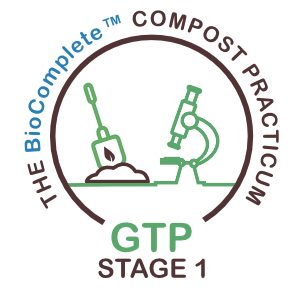
What You Will Learn
What’s Included

Graham is an internationally respected teacher, author and lecturer in Permaculture and other aligned disciplines over the last thirty years. He was the first person in Britain to be awarded the Diploma in Permaculture by Bill Mollison personally, in 1990. His home in the Scottish Borders with his wife Nancy boasts the longest-standing intentional food forest garden in Britain. Over a thousand visitors a year (in previous times) attest to the amazing productivity of this space.
Course Themes
What’s Included

Didi Pershouse is the author of The Ecology of Care: Medicine, Agriculture, Money, and the Quiet Power of Human and Microbial Communities and Understanding Soil Health and Watershed Function. She teaches participatory workshops both in person and online, helping to show the nested relationships between soil health, human health, water cycles, and climate resiliency. She is the founder of the Land and Leadership Initiative and the Center for Sustainable Medicine, and a co-founder of the “Can we Rehydrate California?” Initiative. She is an independent trainer and curriculum developer for the UN-FAO Farmer Field School Program and the Andhra Pradesh Community Managed Natural Farming Initiative in India. She was one of five speakers at the United Nations-FAO World Soil Day in 2017.
Healthy soil is the fundamental infrastructure that makes life on land possible, but only when it is alive and functions like a sponge. A living “soil sponge” can soak up rain, store and filter water; and provide health, resilience, and thriving economies for the communities that grow from it.
Farmers and communities that create conditions for a soil sponge to grow experience interrelated benefits such as:
Topics Covered:
Participants will gain:
Participants will also have:
What you’ll get with this workshop:
Not a Farmer, Rancher, or Grower? Interested in becoming a Soil Food Web Consultant, Lab-Tech or Biological Compost Producer?
You can save 45% OFF too; click here to learn more.

You’ll get a 30-day, no questions asked, money-back guarantee on the total price paid. The only condition is that you have watched 32 lectures or less of the Foundation Courses.
Not a Farmer, Rancher, or Grower? Interested in becoming a Soil Food Web Consultant, Lab-Tech, or Biological Compost Producer?
You can save 45% OFF too; click here to learn more.
Normally $5,000
Normally $1,540
Normally $200
Normally $300
Now $3,870
This offer will end at midnight on January 25th 2022
You’ll get access to the Foundation Courses Forum where your questions will be answered by Dr. Elaine and her team.
You can attend monthly Q&A webinars with Dr. Ingham, other members of the faculty, and prominent guest speakers.
You’ll get a completion certificate with the Foundation Courses and have the option of certifying as a Soil Food Web Lab-Tech.
You can download Lecture Slides, Course Manuals, and other printable documents to create your own library of reference materials.

Dr. Ingham has advanced our knowledge about the soil food web for over 4 decades. Widely recognized as the world’s foremost soil biologist, she’s passionate about empowering ordinary people to bring the soils in their community back to life.

Didi Pershouse is the author of The Ecology of Care: Medicine, Agriculture, Money, and the Quiet Power of Human and Microbial Communities and Understanding Soil Health and Watershed Function. She teaches participatory workshops both in person and online, helping to show the nested relationships between soil health, human health, water cycles, and climate resiliency.

Graham Bell is Chair of Permaculture Scotland & Permaculture Association Britain, and is the longest-serving Permaculture Teacher in the UK . He is the author of The Permaculture Way and The Permaculture Garden. He is a registered Certified Teacher with PAB and Permaculture Institute of Australia. He is the first holder of the Elders Award in the UK and Honorary Elder in Australia.

To say Dr. Schneider “loves microbiology” is a bit of an understatement. With a Ph.D. in biology and many years of experience, she’s an invaluable member of the Soil Foodweb team. Her background in microbiology and research allow her to support her students with relevant information and balanced insight. Eva really enjoys supporting students in the CTP as they work towards becoming Certified Soil Food Web Consultants.
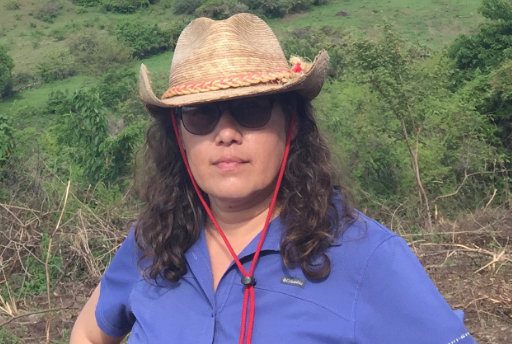
Loida has worked with Dr. Elaine for over a decade. Dr. Elaine was her professor at MUM, where Loida earned a degree in sustainable agriculture with a focus on living soils. Dr. Elaine then became her boss at the Rodale Institute in Kutztown, Pennsylvania. She was a farm manager for 3 years, where she managed the transition of an 1,000-acre intensive crop farm from conventional to organic farming. Loida has also worked out in the field as a soil consultant for several years, helping large-scale farmers make that transition. Now Loida shares her knowledge, in both English and in Spanish, with our students who are hungry to learn about soil science.
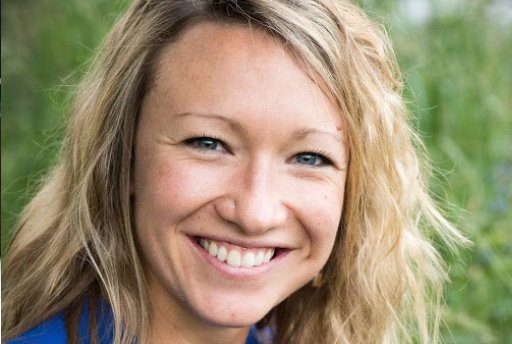
Adrienne kept to the trail to protect the biological soil crust in Moab, UT, while she dreamt of saving the Amazon Rainforest for the toucans. She taught in Oregon forests at Outdoor School, completed her Ph.D. on nitrogen fixation, and traversed Europe in her postdoc to study the scent of a flower that mimics dung. Amazed by the power of plants to use chemical signals that attract predators for their own defense, she was inspired to work towards reducing harmful pesticide use. Adrienne is thrilled to finally put this aim into practice with the Soil Food Web School!

Eric completed his graduate work in Paleo-Ecology at Northern Arizona University. He was a founding member of the PaleoCultural Research Group, a non-profit focused on the ecological and cultural history of the Western U.S. and the Great Plains. In 2001, Eric abandoned academia and research and moved with his family to Southern Utah to start farming. Frustrated with 'conventional' farming, he attended a 2013 workshop held by Dr. Ingham. It was a life-changing experience and he returned to the scientific world where he has spent the last few years sharing the Soil Food Web Approach with others. In 2019, he started a soil fertility consulting business. He's a real go-getter!

Tanja had an extensive career in IT and describes herself as a “recovering IT specialist”. She fell in love with the Soil Food Web Approach when she saw Dr Ingham delivering a keynote speech at the Oxford Farming Conference in 2016. Today she is a soil biology consultant based in the Netherlands and is spearheading a number of exciting community projects in her hometown of Delft, including a neighborhood worm bin initiative in conjunction with the local government authorities. We are very proud of her!

For as long as I can remember, I have been fascinated with natural systems. It started with growing up on a homestead and culminated into starting a Soil Biology Consulting business. I have worked in the high-tech industry for most of my adult life. I decided to make the transition from corporate life to running a business focused on helping farmers transition from conventional to biological farming. I am exceptionally positioned to take what I learned from the high-tech industry and apply it to the agricultural industry. My goal is to help accelerate and drive biological farming into the mainstream.
Dr. Elaine has used the Soil Food Web Approach to regenerate soils on 6 continents. We now have students in over 80 countries and so far we haven’t found anywhere in the world where the soil ecosystem cannot be restored. (Antarctica is the obvious exception since the soil isn’t accessible there!)
All plants form symbiotic relationships with microorganisms in the soil. That’s because when plants first evolved on the land, around 500 million years ago, the world’s soils were already populated with microbes. So these relationships have been there from the beginning. Our persistent disturbance of the soil, with the plow and more recently with chemicals, has destroyed the balance that existed in the soil ecosystem. Fortunately, we can put that right very rapidly with the Soil Food Web Approach, which is all about harvesting microbes from the local area, multiplying the aerobic microbes using Dr. Elaine’s close-control composting system, and then re-introducing them to the soil. With regenerative agricultural techniques like no till, the soil biome is protected and so repeated treatments may not be necessary.
The short answer is ‘yes’. Dr. Elaine has worked on large scale projects that cover thousands of acres. She has also worked on some smaller projects too. BioCompleteTM Compost and liquid amendments can be produced at large scale, using industrial equipment and also at very small scale, using hand tools and home-made brewing kits. Of course, application at large scale is very different than it would be in someone’s garden, but the good news is that conventional spraying equipment and irrigation systems can be used to deliver BioComplete™ Liquid Amendments to the soil, with some very minor modifications.
Our training programs are designed for people with no scientific or agricultural background. Dr. Elaine has an informal teaching style that makes the lectures easy to follow. You’ll have access to the Student Forum and monthly live Q&A sessions where your questions will be answered.
This is a flexible online program, so you can work at your own pace. The Foundation Courses can be completed in as little as 4 weeks or in as long as 12 months. The Mentoring Program is also designed to be very flexible. You can book sessions with your mentor when you feel you need support, and your mentor will be on hand to answer your emails. The program is designed for people with busy schedules.
Yes, the Foundation Courses are 100% online, theory-based courses. You will watch a series of lectures and take a short quiz after each one.
Yes, they are. You’ll be able to login at any time, watch a lecture as many times as you like, then prepare for the short multiple-choice quiz that follows each lecture.
You can start as soon as you sign up.
There are 63 lectures total in all four Foundation Courses. To see the full breakdown of the Foundation Courses and the lecture titles, please click here.
The regular price for the 4 courses is $5,000. With the January 2022 offer you pay $3,870 and you get lots more FREE!
Students typically require about 150 hours in order to complete the FC at a reasonable pace.
We expect that a student can complete the FC in 4 weeks, if studying full-time. The maximum time allowed to complete the FC is 12 months. You can apply for an extension if you need it.
The courses are designed for people with no background in the field.
Students wishing to pursue a career as a Soil Food Web Consultant will need to progress from the FC to the Consultant Training Program.
Some become Soil Food Web Consultants who help farmers, ranchers, and growers to transition away from using chemicals to a biological/regenerative farming technique. Others focus on producing great compost, which they then can sell to soil consultants or direct to farmers. And others become Soil Food Web Lab-Technicians who perform biological assessments for farmers and growers, or for Soil Food Web Consultants.
Students typically need to make at least 6 compost piles before they can achieve the required standards for passing the compost practicum. If you have the resources, you can make multiple piles, with varying recipes, simultaneously, to save time. Each pile will require up to 28 days to complete, once built. A reasonable time-frame for the compost practicum is 3-12 months. Some students may take longer.
The amount of time required depends on your other commitments. Students are expected to complete the Grower Training Program within 2 years. The maximum allowable time for completion is 3 years after which your enrollment will expire. This policy is designed to help students to remain focused and motivated. You can of course apply for an extension if there are extenuating circumstances. Below is a breakdown of the time needed to complete each stage of the Grower Training Program:
Grower Training Program Stage 1 – The BioComplete™ Compost Practicum
Students typically need to make at least 6 compost piles before they can achieve the required standards for passing the compost practicum. If you have the resources, you can make multiple piles, with varying recipes, simultaneously, to save time. Each pile will require up to 28 days to complete, once built. A reasonable time-frame for the compost practicum is 3-12 months. Some students may take longer.
Grower Training Program Stage 2 – The BioComplete™ Liquid Practicum
Students can expect to complete Stage 2 within 3 months, or less if they are well prepared and focused.
Grower Training Program Stage 3 – Implementation
The duration of the Final Project should be around one growing season +/-1 month. You should allow some time prior to the growing season for preparation; several hours per month, during the growing season, for data collection; and several days of work at the end of the growing season for data analysis and the write-up of your project.
The courses are designed for people who are either Farmers, Ranchers, or Growers. While you don’t need a background in science or any other qualifications, you will need access to some land and other resources. If you are considering taking this course before you purchase land, that’s ok, so long as you have some space and resources to make your compost (and to practice microscopy) in Stage 1, and to make your liquid amendments in Stage 2. You will need the land by the time you reach Stage 3 for implementation.
You will need to purchase several pieces of equipment in order to complete each stage. The precise budget will depend on the size of your operation. Your mentor will be able to advise you on equipment selection. The minimum requirements are likely to cost at least $1,000. You may be able to repurpose some of your existing equipment e.g. spraying rigs for the application of liquid biological inoculate.
This is not currently possible, but we are hoping to put on a number of in-person intensive workshops in 2022.
Yes it is. Grower Training Program students are required to complete the Certified Lab-Tech Program in Stage 1 of the Grower Training Program. Click here for more info.
The Grower Training Program is intended for farmers, growers, and ranchers who do not wish to become certified consultants but if you change your mind during your program (before you enter Stage 3), you can transfer from the Grower Training Program to the Consultant Training Program (CTP) and complete Stage 3 of the Consultant Training Program. This will enable you to be certified as a Soil Food Web Consultant.
The term BioComplete™ is used to refer to compost and liquid amendments that meet the minimum biological requirements defined by Dr. Elaine Ingham as being required in order for the amendment to be effective in restoring the soil biome, when correctly applied. You will be trained how to make these amendments in the Grower Training Program (GTP). Once you have successfully completed the Grower Training Program, you can apply to the Soil Food Web School for a license to use the term in association with your products, but the term can only be used by individuals and corporations that have a license agreement in place. Licensees will be required to meet stringent quality assurance requirements.
Yes, the course includes 18 pre-recorded lectures and quizzes delivered entirely online. You can login any time you like, watch the lectures as many times as you wish and then take the short, multiple-choice quiz.
Yes, you can access and view the lectures and take the quizzes at your own pace. Students typically require about 40 hours in order to complete the IPC at a reasonable pace. We expect that a student can complete the IPC in 1 week, if studying full-time. You will have access to the IPC content for as long as we maintain the program.
You can start as soon as you sign up.
There are 18 lectures. Each lesson is a lecture delivered by Graham Bell with a PowerPoint presentation, with interspersed contributions from other Permaculturalists from various parts of the world. The PowerPoints will be available to download as PDFs. Each lesson is followed by a short quiz to help you track your comprehension.
No. Graham is not available for Q&A at this time.
$200 as a free-standing course, but it’s free with the January 2022 promotional bundle.
The courses are designed for people with no background in the field.
No. This is a five-part, live discussion workshop.
This is a five-part, live discussion workshop.
Whether you are a farmer, a policymaker, a journalist, or an investor trying to make a change in the world, after taking this course you will see the potential of simple strategic land-management decisions to create the conditions for land to naturally regenerate its water-absorbing sponge-like structure and function. Click here to download a full class description.
There are 5 sessions, each 2.5 hours long.
$300 as a standalone workshop, but it’s free with the January 2022 promotional bundle.
The courses are designed for people with no background in the field.
Whether you are a farmer, a policymaker, a journalist, or an investor trying to make a change in the world, after taking this course you will see the potential of simple strategic land-management decisions to create the conditions for land to naturally regenerate its water-absorbing sponge-like structure and function.